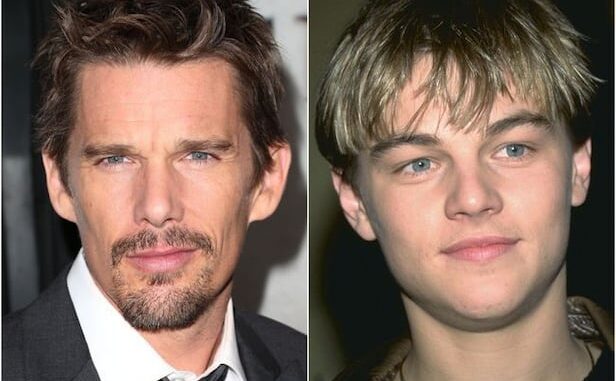
Drowning in the Wave: Ethan Hawke, Leonardo DiCaprio, and the Untamable Beast of Titanic Fame
Ethan Hawke’s observation that Leonardo DiCaprio’s fame following Titanic was akin to Beatlemania is not just a pithy soundbite, but a powerful metaphor. It highlights the terrifying intensity, the suffocating pressure, and the ultimately dehumanizing effect of fame reaching a level that transcends celebrity and enters the realm of cultural phenomenon. Hawke's analogy paints a vivid picture of a young actor navigating a world suddenly warped by the gravitational pull of unprecedented adoration, a situation that, for DiCaprio, became a baptism by fire in the turbulent waters of superstardom.
The Beatles comparison is particularly apt. The Fab Four weren't just musicians; they were symbols. Their music, their fashion, their very existence represented a seismic shift in youth culture, a rebellion against tradition, a burst of vibrant energy that captivated a generation. Similarly, DiCaprio, as Jack Dawson, embodied the romantic ideal of the young, idealistic, and ultimately doomed hero. He became the face of an era, the poster boy for teenage yearning, and the object of relentless, unwavering attention. The screams, the fainting spells, the obsessive fan mail, the constant presence of paparazzi – these were the hallmarks of both Beatlemania and DiCapriomania, symptoms of a cultural infatuation bordering on hysteria.
But the comparison runs deeper than mere volume of adoration. It speaks to the loss of control that accompanies such intense scrutiny. The Beatles, despite their immense talent and shrewd management, eventually felt trapped by their image, yearning for artistic freedom and personal space. DiCaprio, too, was thrust into a role he hadn't entirely chosen. He wasn't just an actor; he was "Leo," the romantic icon, the heartthrob, the boy next door who suddenly became unattainable. This curated image, however flattering, can become a gilded cage, stifling creativity and hindering personal growth. Hawke, having witnessed this firsthand, likely recognized the inherent danger of being defined by a single role, a single moment of overwhelming success.
Furthermore, the Titanic phenomenon created a level of expectation that was arguably unsustainable. Imagine the pressure to constantly deliver performances that meet or exceed the benchmark set by such a monumental film. Every subsequent role would be scrutinized, dissected, and inevitably compared to Jack Dawson. This burden, coupled with the constant attention, could easily lead to burnout, anxiety, and a sense of detachment from reality. It's not surprising that DiCaprio, with his undeniable talent and ambition, actively sought roles that distanced him from the romantic image, choosing complex, challenging characters that allowed him to prove his versatility and reclaim control of his narrative.
Hawke’s comment, therefore, serves as a cautionary tale about the dangers of unchecked fame and the importance of maintaining a sense of self in the face of overwhelming public attention. It underscores the fragility of the human spirit when confronted with such intense pressure and the need for artists, like DiCaprio, to consciously navigate the treacherous waters of superstardom in order to preserve their sanity and their craft. Ultimately, Hawke's analogy reminds us that even the most talented and grounded individuals can be swept away by the tidal wave of fame, and that surviving such an experience requires not just talent and ambition, but also resilience, self-awareness, and a healthy dose of perspective. DiCaprio’s subsequent career, a testament to his dedication and artistry, suggests that he not only survived the wave, but learned to surf it, emerging as one of the most respected and influential actors of his generation. He transformed the fleeting image of a teenage heartthrob into the enduring legacy of a true artist.